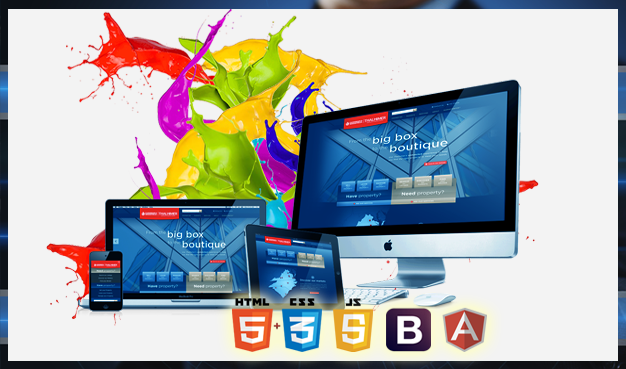- Have any questions?
- (Prasad) +91 96191 46851 | (Parag) +91 99878 20022
- support@pnpwebdesign.com
Exploring the Diverse World of Different Kinds of Websites

Unveiling the Best Digital Marketing Companies in Navi Mumbai: Your Gateway to Online Success
March 16, 2024
Exploring the Difference Between Website Design and Website Development
March 20, 2024Exploring the Diverse World of Different Kinds of Websites

In today’s digital age, websites have become indispensable tools for businesses, organizations, and individuals alike. From e-commerce platforms to informational portals, the internet hosts a vast array of different kinds of websites, each serving unique purposes and catering to specific needs. In this comprehensive guide, we’ll dive into the diverse world of different kinds of websites, exploring their characteristics, functionalities, and real-world examples. Whether you’re a budding entrepreneur, a seasoned professional, or simply curious about the intricacies of web development, this article will provide valuable insights into the various types of websites that populate the online landscape.
-
Static Websites:
Static websites consist of web pages that are fixed and display the same content to every visitor. These websites are typically built using HTML and CSS and are well-suited for businesses or individuals looking to establish a simple online presence. Examples of static websites include personal blogs, portfolio sites, and landing pages.
-
Dynamic Websites:

Dynamic websites are characterized by their ability to generate content dynamically based on user interactions or database queries. These websites often utilize server-side scripting languages such as PHP, Python, or Ruby on Rails to deliver personalized content to users. E-commerce platforms, social networking sites, and content management systems (CMS) like WordPress are prime examples of dynamic website.
-
E-commerce Websites:
E-commerce website facilitate the buying and selling of goods or services online. These website feature product listings, shopping carts, and secure payment gateways to enable seamless transactions between buyers and sellers. Popular e-commerce platforms include Amazon, eBay, and Shopify, catering to a wide range of industries and consumer needs.
-
Portfolio Websites:
Portfolio website are designed to showcase the work, skills, and accomplishments of individuals or creative professionals. These website often feature galleries of projects, testimonials from clients, and contact information for potential opportunities. Artists, designers, photographers, and freelancers frequently use portfolio website to attract clients and showcase their talents.
-
Corporate Websites:



Corporate website serve as the digital face of businesses, providing information about their products, services, and corporate identity. These website typically include sections such as About Us, Services, Contact, and Careers, offering visitors insight into the company’s mission, values, and offerings. Examples of corporate website include those of multinational corporations, small businesses, and startups.
-
Educational Websites:
Educational website offer resources, courses, and learning materials to students, educators, and lifelong learners. These website may feature lecture videos, interactive quizzes, and discussion forums to facilitate online learning experiences. Platforms like Coursera, Khan Academy, and Udemy are prominent examples of educational website catering to diverse learning needs.
-
Blogging Websites:
Blogging website provide individuals and organizations with a platform to publish articles, opinions, and insights on various topics of interest. These website often feature comment sections, social sharing buttons, and archives of past posts to encourage reader engagement and content discovery. Examples of popular blogging platforms include WordPress, Medium, and Blogger.
-
Community Forums:
Community forums, also known as message boards or discussion platforms, enable users to engage in conversations, ask questions, and share knowledge on specific topics or interests. These website feature categories, threads, and user profiles to facilitate communication and collaboration among members. Reddit, Stack Overflow, and Quora are well-known examples of community forums.
Conclusion: Different kinds of Websites
The internet is home to a diverse ecosystem of different kinds of website, each serving unique purposes and catering to specific audiences. From static personal blogs to dynamic e-commerce platforms, the possibilities for website development are virtually limitless. By understanding the characteristics and functionalities of various types of website, individuals and businesses can make informed decisions about their online presence and effectively engage with their target audience in the digital realm.





